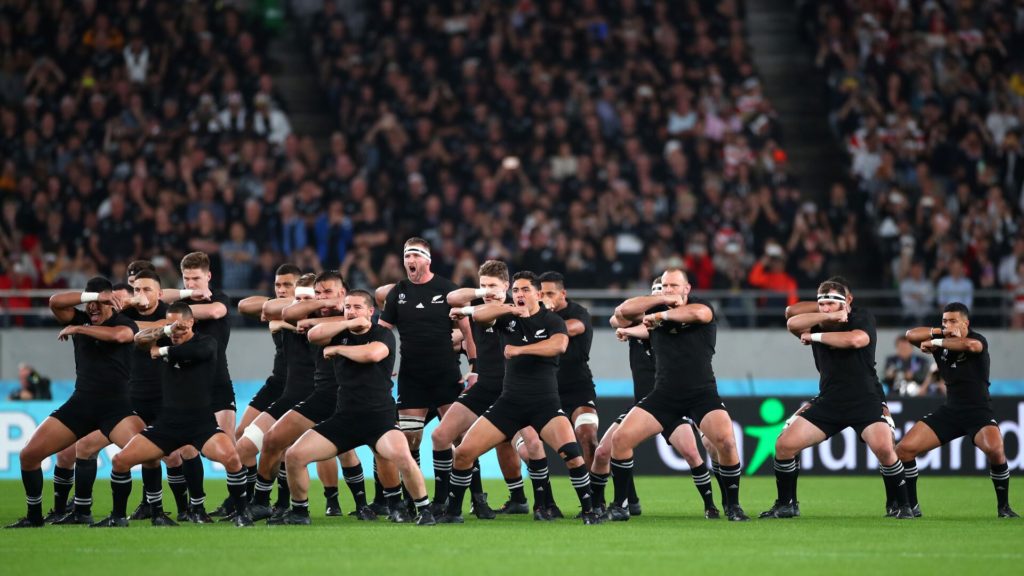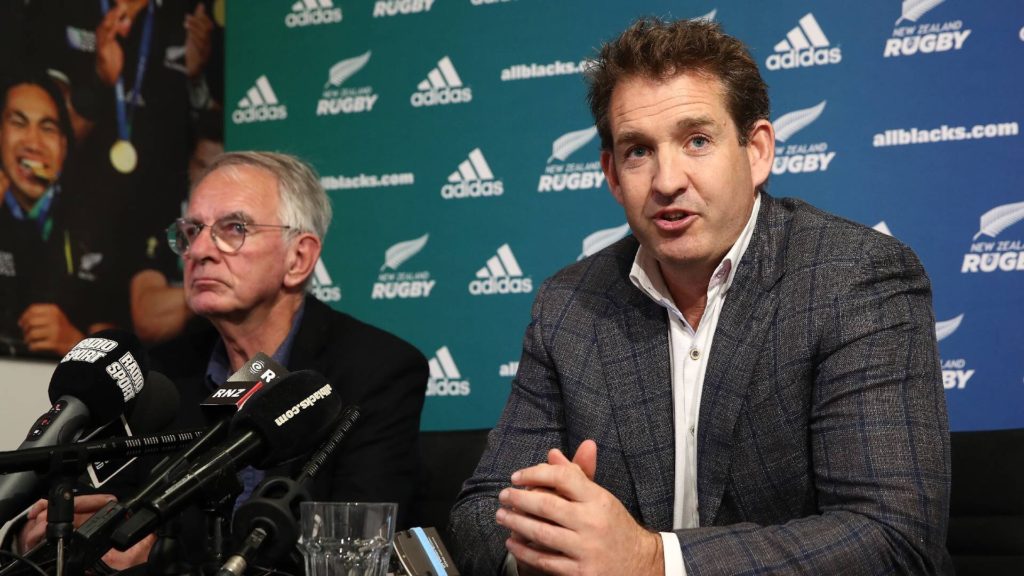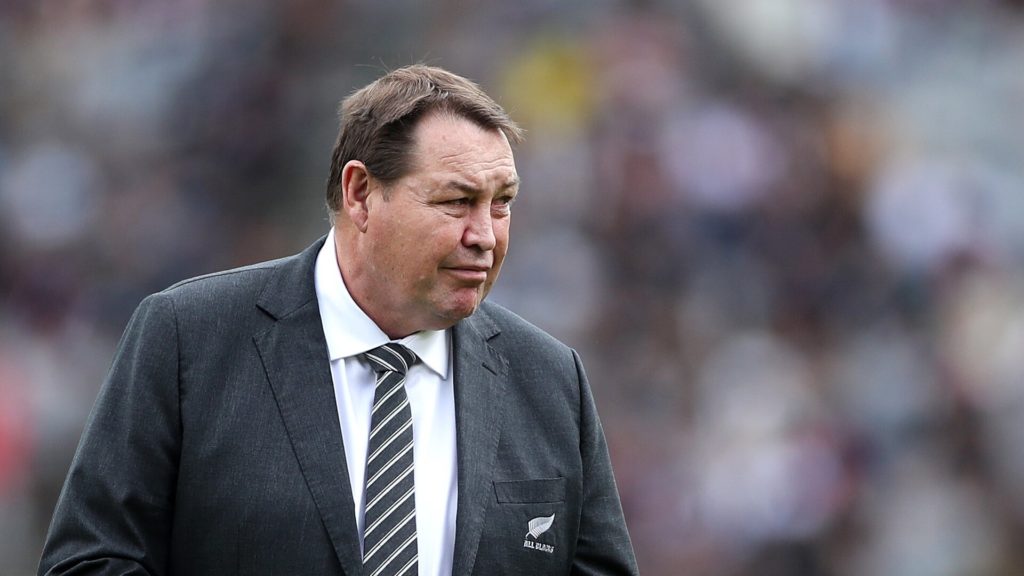Loyalty is a vexed topic in professional rugby right now. Who should expect it and who has earned it continues to trouble many in the professional game.
It seems employers feel they have a right to permanently demand it from their players and then show none of it themselves when it doesn’t suit.
Such cultures are no doubt prevalent across the employment landscape, but professional rugby – professional sport – comes with a whole complexity of relationship between employer and employee that makes it almost impossible to compare with other industries.
What makes professional sport so different is that the whole business is so heavily reliant on a relatively tiny playing cohort.
New Zealand Rugby is arguably the most extreme example. There are 155,000 registered players and about 250 contracted professionals.
That’s the reality of NZR’s financial model at the moment – one team makes almost all the game’s money and that cash has to be distributed in such a way to keep the talent in the country while also funding the grass-roots.
It’s the 250 professionals, however, who make nearly every dollar of the forecast $205m New Zealand Rugby will turnover this year. And more specifically, it will be the 40-50 players who represent the All Blacks who will make 80 per cent of that money.
That’s the reality of NZR’s financial model at the moment – one team makes almost all the game’s money and that cash has to be distributed in such a way to keep the talent in the country while also funding the grass-roots.
Lose the talent, lose the business and while there are undoubtedly skilled people doing important, administrative work around the team, the All Blacks are the cash-cow they are, not because of the marketing department or tight ship the accounts team run, but because there are extraordinarily talented individuals playing rugby better than any other team in the world.

There is the nature of the work to consider. It is dangerous. It is tough. It is demanding and it is also highly insecure. One week a player is deemed the top dog, the next he’s out of the squad.
The All Blacks are also intertwined with New Zealand’s identity and continue to play a meaningful role in shaping the country’s social, economic and experiential history.
The nation still stops for the biggest games and mostly everyone will be able to say where they were when the All Blacks won the 2011 and 2015 World Cups.
The bond between New Zealanders and the All Blacks is strong – there’s a connection there that reaches depths that perhaps other nations don’t reach and NZR has, more than most national organisations, understood the value of its professional players and worked to create a strong relationship with them, at the heart of which is a revenue sharing agreement.
For the last 20 years or so New Zealand has seen just about every other major nation tear itself apart with internecine politics … while all the time, New Zealand has been as united and effective off the field as they are on it.
There’s no better proof that NZR acknowledge the value of their professional playing group than the agreement made in 2013 which sees 36.5 per cent of all revenue given to the players. That’s how it works – 36.5 per cent of all income that is deemed to be generated by the players (which is effectively everything bar investments and interest earned) is put into what is known as the Player Payment Pool.
It’s not unprecedented or unique but it is the basis on which the players and their employer have built a mutual respect for one another that goes deeper than the relationship most professional players have with their respective national union.
But the strength of that relationship is currently being tested by the ongoing attempts by NZR to solicit a major cash injection to stabilise and potentially radicalise the whole business.
For the last 20 years or so New Zealand has seen just about every other major nation tear itself apart with internecine politics.
The RFU has long been at war with the clubs; the Welsh had to survive the transition to regional teams. Australia nearly ripped itself apart over the Western Force in 2017, while all the time, New Zealand has been as united and effective off the field as they are on it.

Until now, because this need to complete an equity raise has led to outright hostility breaking out between the players and their employer, with NZR chief executive Mark Robinson emailing staff last week to tell them that the relationship with the players is at an all-time low.
What sparked his memo, was the arrival, in the media, of a New Zealand Rugby Players Association-commissioned proposal to raise money through a public offering in New Zealand. Under this plan, $170m to $190m would be sought in return for a five per cent stake in the business.
NZR is convinced that a deal with US fund manager Silver Lake which will see them pay $387m for a 12.5 stake in future revenue is the right way to go.
It wasn’t apparent what had angered Robinson more – the alternative proposal or the fact it was leaked to the media first. Either way, it led to him releasing a public statement which said: “NZR has no desire to continue to play out an ill-informed ‘my model is better than yours’ debate – nor do we think the public like it – and we would have rather continued to constructively negotiate with Rob Nichol and his board which we have made clear.
I just wish they would stop airing all their dirty laundry in public, and sit down and get together and talk about it.
Former All Blacks coach Steve Hansen on the current Silver Lake debacle
“Through doing this, the NZRPA leadership has unilaterally taken a decision to attempt to destroy the Silver Lake deal – and the incredible financial and capability outcomes it would provide for all of rugby, as acknowledged by the unanimous vote of our provincial unions and Maori Rugby Board as well as the independent validation of the deal by PWC and global investment bank Jefferies.
“We are sorry, that for the players, their own Union has put them in this position where the greatest opportunity for the future of all of Rugby in New Zealand could be lost.”
For the first time in the professional age, New Zealand is not a unified front. Things have turned decidedly nasty between employer and employee and the drama is playing out publicly, a situation that led to former All Blacks coach Steve Hansen, saying: “I just wish they would stop airing all their dirty laundry in public, and sit down and get together and talk about it.
“There is no point arguing with each other publicly. Get everybody in the room and say ‘okay, let’s sort it out’. The players are only sticking up for what they believe in, so you have got to give them a tick. And the rugby union (NZR) are trying to get some extra money in the game, so you have got to give them a tick.
“The board has to listen to their players. And they don’t need to be doing it in the front part of the house. Get everyone in a room – and actually listen to each other. They have got to be better than that.”

The spat has created a tricky dynamic. There will be those who say the players can’t justify, as employees, a right to dictate the strategic direction of the company. And there will be those who say sport isn’t business and the acute importance of the players makes it good sense to include them and hear their views on the best way forward.
Put more succinctly, the real question in all this is whether the players have earned the right to be heard. And the answer is a resounding yes, which is why the likes of Richie McCaw and Conrad Smith have been prepared to speak to the media, urging NZR to at least entertain the financial plan the NZRPA have put forward.
In a sense, these legends are asking for NZR to show the sort of loyalty that Smith and McCaw did throughout their long and storied careers.
Both could have left for better paid overseas contracts almost at any stage of their respective careers, and yet in McCaw’s case he never did, while Smith only left for France when he was 34 and had given everything he could to the All Blacks.
I hope the public are starting to understand that this isn’t some silly debate where one party is being unreasonable. It is a really complex debate and it is a big, big decision.
Former All Black Conrad Smith
They were loyal to the cause and they now expect their former employer to be loyal to the process of genuinely consulting with the players about the best way forward. “From the start I have said this is a really fascinating debate,” says Smith.
“There is no easy answer to this and reasonable people are going to come to different conclusions as to what the best solution is. It is understandable that there is a lot of nastiness floating around at the moment because people don’t agree on something.
“It is the nature of this debate and I hope the public are starting to understand that this isn’t some silly debate where one party is being unreasonable. It is a really complex debate and it is a big, big decision. There are some pretty cool opportunities be it through private equity or an alternative which the players are now promoting which involves New Zealanders.
“It’s a cool debate to have and most unions dream of having this amount of money we are talking about here. Unfortunately, it is bringing out some emotional reactions – but this is what happens at times when you can’t agree.”
Smith says he hasn’t enjoyed the media headlines of recent weeks but does at least feel now that the brakes have been put on a deal with Silver Lake.

He says he’s not advocating one deal ahead of another or embedded in the NZRPA camp, but is adamant that whatever path NZR heads down, they do so after extensive consultation with a wide range of stakeholders.
“What this debate should be focused on is how do we want to bring in extra capital to New Zealand,” he says. There is obviously an offer from a private equity group that is very attractive and has some massive upsides but carries with it some real risks.
“There is an alternative which the players have composed which would involve funding from New Zealanders and there is going to be arguments from both sides and that is the debate we should be having.
“It has never been from my observations and I am not centrally involved about players wanting money or their share compared with the community game. We need money so it can be given back to the community game and make NZR more secure.
When you are talking about the All Blacks who have 120 plus years of history and a decision that is going to affect the next 120 years, surely you want as many people who care about it to consider it and debate it?
“We have to trust that the process will bring the right outcome.”


Comments
Join free and tell us what you really think!
Sign up for free